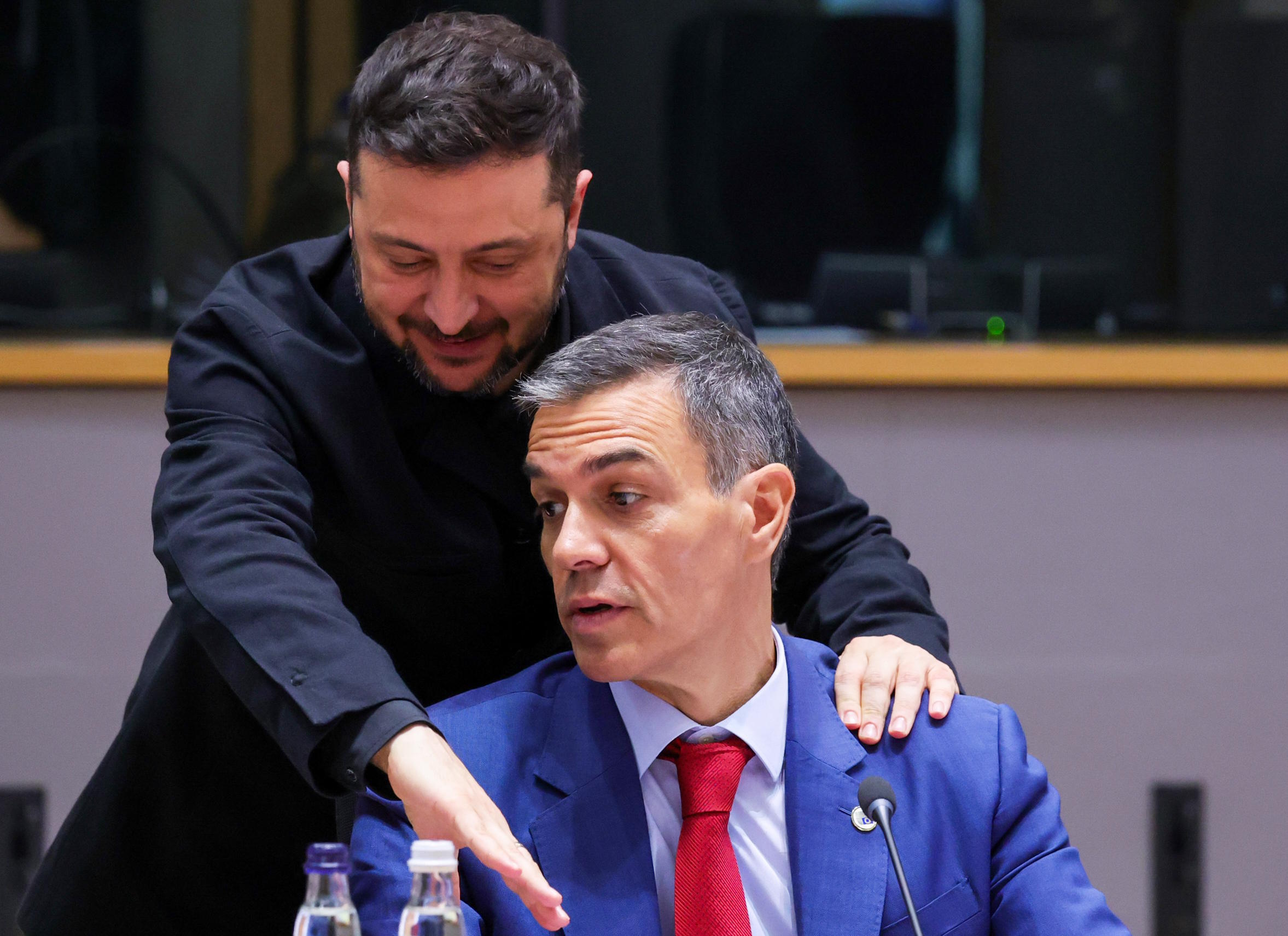In recent weeks, Spain has had a significant presence in the White House. Pedro Sánchez's refusal to commit to investing 5% of GDP in Defense has led Donald Trump to target our country and issue warnings. This clash, downplayed by La Moncloa, generates attention and anticipation. "Do you think Donald Trump is obsessed with you?" was the question posed to Pedro Sánchez upon his arrival at the European Council in Brussels. "No, I believe that Spain is a reliable ally and that we are fulfilling our obligations," responded the Prime Minister.
La Moncloa currently defends that allocating 2.1% of GDP is sufficient to meet the commitments and capabilities agreed with NATO. On the other side of the Atlantic, there is a different expectation. Mark Rutte, Secretary-General of the Alliance, visiting the White House on Wednesday, contradicted Sánchez's approach. "Spain has committed to meeting the target. They claim they can do it with a percentage below 3.5%. I told them: 'You can't.' And we will find out very soon," he said.
"Soon." What does that mean? When? At the last Alliance summit held in the summer, the Hague Summit Declaration was adopted, confirming the commitment to collective defense and establishing national contributions. Countries will present annual plans to meet their spending objectives, and it is planned that in 2029, the strategic environment and Capability Objectives will be reviewed. However, diplomatic sources assure EL MUNDO that "when it comes to meeting capability objectives, NATO regularly checks with Allies to ensure they are on the right track." This means that we won't have to wait four years to find out if there will be any reprimands. To determine who is right in Rutte's challenge.
For now, the latest data released by NATO estimates that Spain had already reached 2% of its GDP spending on Defense in 2025.
Despite the pressure, La Moncloa tries to maintain its position that with that investment percentage, it can meet its commitments with its transatlantic partners because the priority is not to divert money from military spending that was intended for social services. However, the government finds itself in a difficult position: it seeks not to upset its governance partners, who reject increased Defense spending, while this stance leads to a clash with the US and could penalize Spain internationally.
This Thursday, for example, the Minister of Social Rights, Pablo Bustinduy, reminded Trump and Rutte that Spain is a "sovereign" country and therefore makes its "decisions" on what to do with its "resources." Izquierda Unida - a party integrated into Sumar - warned that Spain cannot and should not give in to Trump's "blackmail."
On the other hand, the new US ambassador to Spain anticipated that he will work with the Spanish government to make them understand that failing to meet NATO's defense spending target of 5% is "a big mistake." "I will work diligently with the Spanish Government to make them understand that it is a serious mistake," declared Benjamin León during his confirmation hearing in the Senate, as reported by the Efe agency.
Amid this clash over military spending, Spain announced its adherence to the PURL Alliance program (Ukraine's Prioritized Requirements List), which involves purchasing weapons from the US to send to Ukraine. This matter was discussed in a phone call last Tuesday between Sánchez and Volodymyr Zelensky - on the same day, the Minister of Defense, Margarita Robles, also spoke with her Ukrainian counterpart. "Ukraine has asked NATO member states for additional assistance to protect its cities and energy infrastructure from Russian bombings. Doing so before a new Russian offensive and the cold winter begins is essential," government sources explained.
"We have been studying, logically, what joint purchases we can make since the NATO initiative was launched," Sánchez stated upon his arrival at the European Council.
Spain is already sending its own electricity generators, around 70, and humanitarian aid, in addition to signing a bilateral agreement that involves allocating 1 billion euros annually to Ukraine. In this case, joining the PURL program, as acknowledged by the government, means sending equipment to Zelensky that is needed and currently mainly produced in North America. This entails purchasing weapons from the United States. The government has not detailed the investment that this decision will entail, but the expenditure will come from the 2.1% of GDP allocated for Defense investment.
